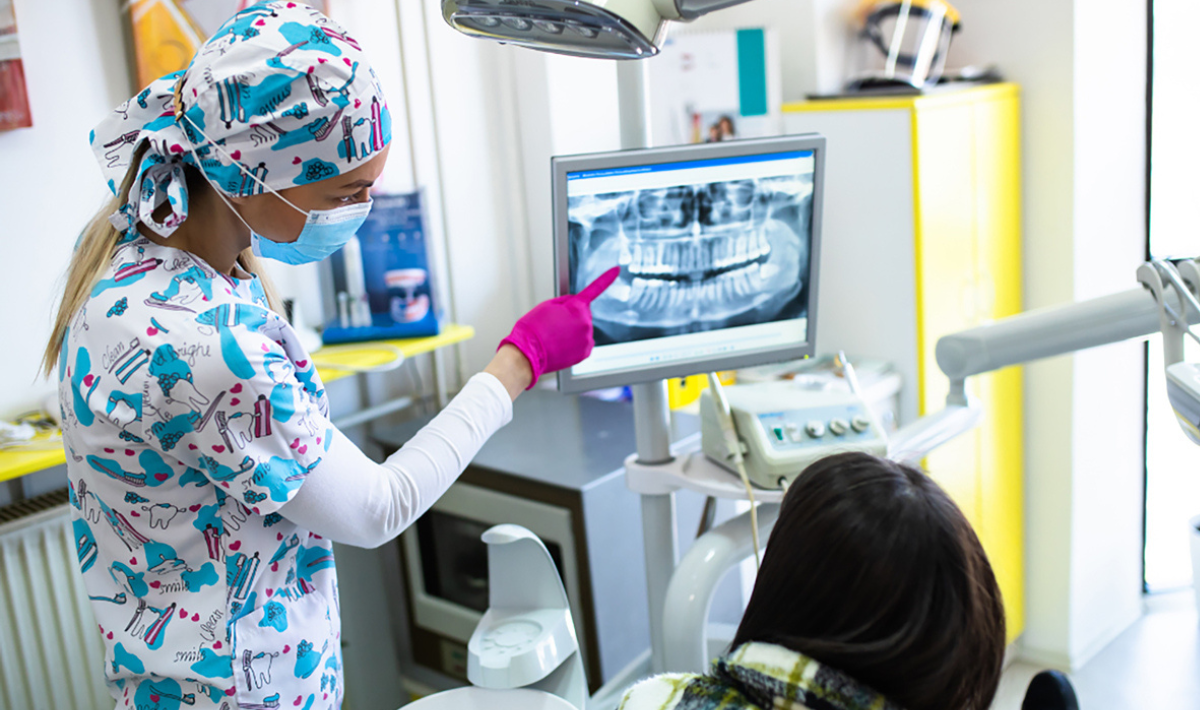AI has the potential to transform the dental industry by improving patient outcomes, increasing efficiency, and reducing costs.
Integrating Artificial Intelligence (AI) in healthcare software is no longer just an innovative option – it’s a necessity. AI brings advanced data analytics capabilities, enabling real-time processing of complex datasets, from patient records to imaging. However, it can be confusing to know what the best options for dental practices are due to the widespread misinformation surrounding AI.
To help combat that confusion, Brian Colao, of Dykema, facilitated an exclusive DEO Member peer discussion where they discussed diagnostic AI – what it means for dental organizations, its opportunities, pitfalls and proper utilizations. The following are key points that came out of that discussion.
What is diagnostic AI technology?
Diagnostic AI in the dental industry is a technology that can evaluate patient X-rays. A patient’s X-ray can be overlayed with AI software, and then the X-ray can be evaluated and diagnosed at a much higher degree of accuracy than solely human analysis. AI is not always perfect, but it is much better at capturing some dental conditions that dentists may not be able to identify as easily, such as cavities and other abnormalities.
Improved disease detection
Dr. Kyle Stanley, co-founder of Pearl AI said their models show 37% more disease detection with AI technology. “Dentists are pretty good at reading radiographs, but they are not perfect or consistent. With both the dentist and the AI diagnosing together, the outcome was always better. The average dentist is about 70% accurate, meaning they would greatly benefit with help from AI.”
By catching cases you may otherwise miss, AI is arguably an ethical way to perform more patient procedures and increase your revenue and EBITDA.
Create a higher standard of care
Implementing diagnostic AI can increase the value of a practice overall by helping dentists impose a higher standard of clinical care. Are your associates underdiagnosing conditions, or over diagnosing? Are they catching enough cavities and doing enough fillings? AI can help you objectively evaluate your associates and increase an organization’s ability to teach and train them. It’s a valuable tool for leaders to defend what they’re saying and even develop a protocol for treatment plans moving forward.
Florian Hillen, CEO and co-founder of VideaHealth said dentists are incredibly busy, and AI tools can help them focus on other tasks while having the AI assist in ensuring that treatment decisions are correct. “There are two measurable impacts, one is elevating patient care, and the other is identifying more treatable diseases with the AI than without the AI.”
Increase case acceptance
AI technology not only makes it easier to diagnose patients, it also is helpful in increasing case acceptance. With diagnostic AI, patients who may be skeptical at first can better understand the progression of their issue because they are seeing it visually, thus they are more likely to accept treatment.
The dental practice also has the information they need to send to the insurance carriers for reimbursement of the treatment. Everybody knows the insurance carriers are chiseling away at what they’re going to reimburse. An AI tool can give you an objective standard to show the insurer what AI caught, and as a result, the treatment was justified for reimbursement.
Proceed with caution
Some of the current pricing on AI tools is geared toward getting dental group practices just to sign up with price increases coming later on. It’s a race to the bottom, and not a sustainable model within the industry. There needs to be a consistent – and realistic – pricing system developed across the industry.
Not all products are the same. FDA clearances are important to consider.
Also, some feedback that dentists have given to DEO on the technology is that some AI interfaces are not as easy and seamless to use, often causing extra stress for teams. The technology is in its infancy, and in its current state, can at times be cumbersome, cause issues, and slow care down.
There are specific programs and partnerships that allow a smoother transition with the implementation of AI technology in dental companies. If a dental company is interested in AI technology, they should reach out to reputable software companies that work within the dental space and have a track record of successful partnerships.
Before considering the implementation of AI in a dental practice, be sure to weigh the pros and cons, as it is a continually developing solution.





